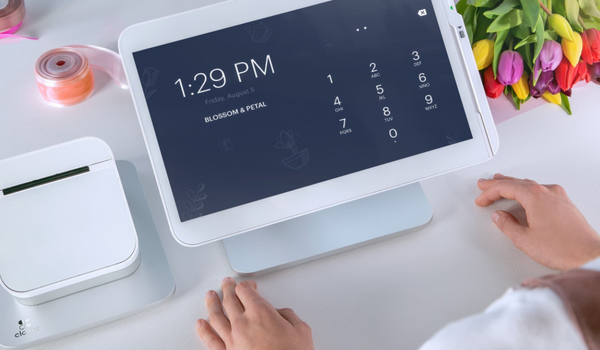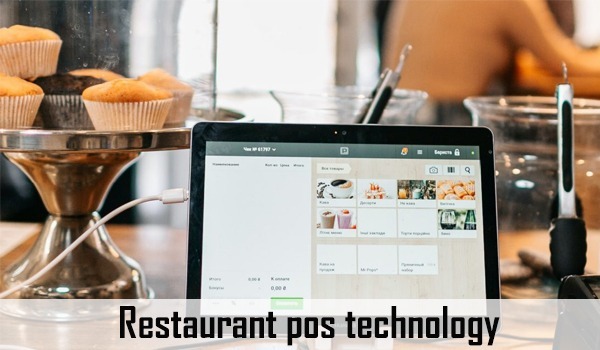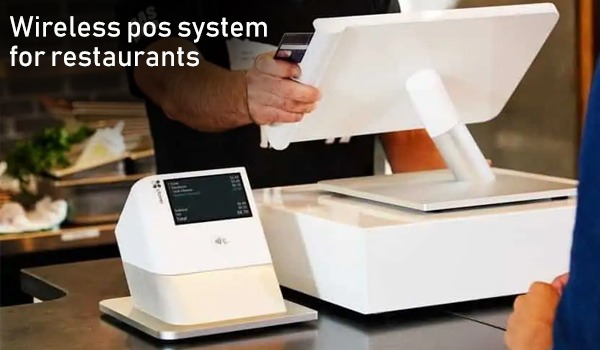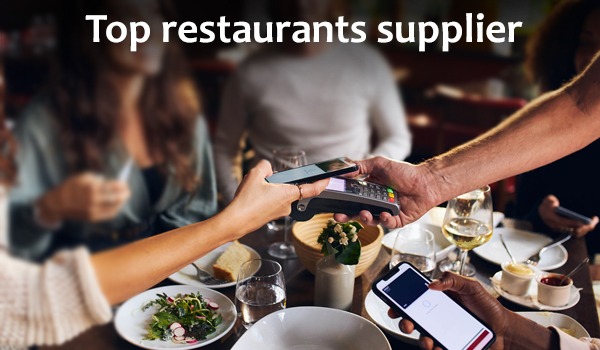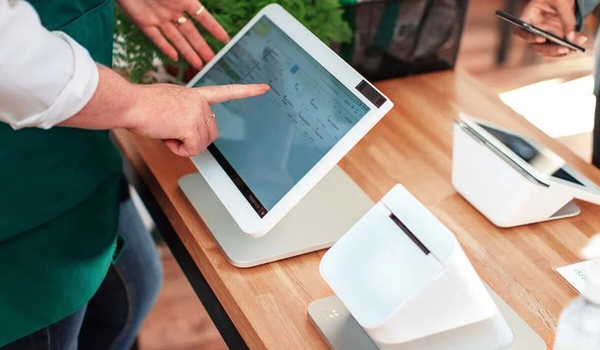
Best POS Systems for Restaurants in California
A Point-Of-Sale System is a physical system that helps business owners accept payments for the goods and services they provide. Especially for those in the hospitality industry, having close interactions with their customers and choosing the right POS System for Restaurants in California is the most important step in running a successful business.
Nowadays, it is very hard for businesses not to accept card payments. The ability to process different types of payments, like Swipe/Tap, Chip, Contactless payments, etc., is vital to any business. In this process, having a POS System will be most helpful. Restaurant owners have to focus on many aspects of running the business smoothly.
POS Systems for Restaurants, as mentioned, are important, so how does one go about choosing the right one? Restaurants need to pay attention to every minute detail, from having the right location, choice of items on the menu, and, most importantly, pleasing customer service.
Just having the right menu and location and catering to customer tastes alone is not sufficient. Having the right POS system for restaurants will be an added advantage when customers find it easy to place their orders and pay for them with minimal wait times and zero errors.
Choosing the right POS Systems for Restaurants in California is the next critical step. Ideally, the POS System should be able to handle the exhaustive menu options and ease of accepting orders and taking payments.
Benefits of POS Systems for Restaurants in California:
1. Accuracy, Flexibility, and Speed : These are the three most important aspects of any POS system. A restaurant owner has to deal with stiff competition from peers and ever-changing customer tastes, and with the advent of social media, he/she has to learn to adapt quickly to newer and fast-paced changes. With the help of a good POS, System restaurants can handle all these challenges and not only improve their bottom line but also look to expand their business.
2. Inventory Management: The key aspect of any restaurant business is to manage the inventory effectively. The POS systems can help in managing food costs, avoiding wastage, and tracking stocks to make sure the items required are in stock. This real-time data increases efficiency and thereby helps restaurant owners to be on top of their game.
3. Menu Setting: For restaurant owners, it is very important to update the menu to suit the ever-changing tastes of their customers. So POS systems can help quickly update the current menu selections; since nowadays most systems are cloud-based, changes can be from an offsite system to update the new menus across multiple terminals or locations.
4. Restaurant management: If you own a dine-in restaurant, managing the reservations, especially during the festive season and holidays, can be quite daunting. With an advanced POS system for restaurants, this can be very easily handled, resulting in reduced wait times for customers, and it allows for flexibility in managing the restaurant floor space optimally.
5. Online Ordering Systems: This option has become even more popular. Most restaurants, along with their dine-in option, also have online ordering enabling their customers to relish their lip-smacking delicacies from their homes. Having a POS system can help integrate the restaurant website to ensure orders made on the website are reflected in the centralized POS systems. This helps in keeping track of all orders in one place, be it dine-in orders or online orders.
6. Payment Methods: The POS System should be able to handle all payment types to ensure no customer is left out. Swipe/Tap, Chip, EMV, and contactless payments, such as Apple Pay, Venmo, etc, are easily processed. Through these, customers are happy that a broad range of payment types are accepted.
7. Employees & Time Sheets: A great restaurant is not an independent effort. Right from the Chef to the waiters and other staff, they all are an essential part of the team. POS systems for restaurants will have an active and effective employee management tool to help track employee hours, sales, tips, and other key functions.
8. Reporting: POS systems have reporting features that help owners keep a close watch on sales, profits, expenses, etc. Some POS systems also have the added advantage of having accounting software integrated into them for ease of use and handling day-to-day issues and can help in financial planning.
9. Receipts: A POS System gives customers detailed receipts. Restaurant owners can also customize the receipt. This will help in planning for loyalty or a rewards program or taking customer surveys or having social media promotions etc. The choices are limitless.
10. Security: Most POS systems come with a high level of security encrypted. Data breaches, piracy, etc., can be avoided or minimized with the right POS system. A POS System coupled with a great payment processor with its PCI Compliance procedure ensures that a high level of security is maintained with all customer card information.
How to Choose the right POS System for Restaurants
- Identify the requirements: You are the best judge of your restaurant, be it a dine-in space or offering exclusively To- go options; based on that, you can choose the POS that suits your business needs
- Ease of Use: The POS should have a user-friendly interface. In this business, employee turnover is high, so it should be easy to use for your staff
- Cost: Depending on the size and nature of your business, it will be wise to choose a POS that can help you. In other words, if you’re a food truck owner, it is not recommended to buy a large piece of equipment that has more capabilities than you need. Cost Effective is the mantra here. However, a fine dining restaurant will have far more complex requirements which need to be understood and based on that, the POS systems can be selected.
- Read Reviews & Demo: Investing in a POS is not a decision to be taken lightly, so it is better to read reviews and get feedback from your peer group to decide which is the best POS system to opt for. If possible, try to get a demo done or ask for a trial period where you can check out the POS system and see if the features work for you.
With all these tips, we hope you can make an informed decision about choosing the best POS system for a restaurant in California.
As a merchant services provider Q PaymentZ, which has been in the business for over 10 years, can help you decide which POS will be most suitable for your business. Give them a call today to check out their rates on different POS Systems.

